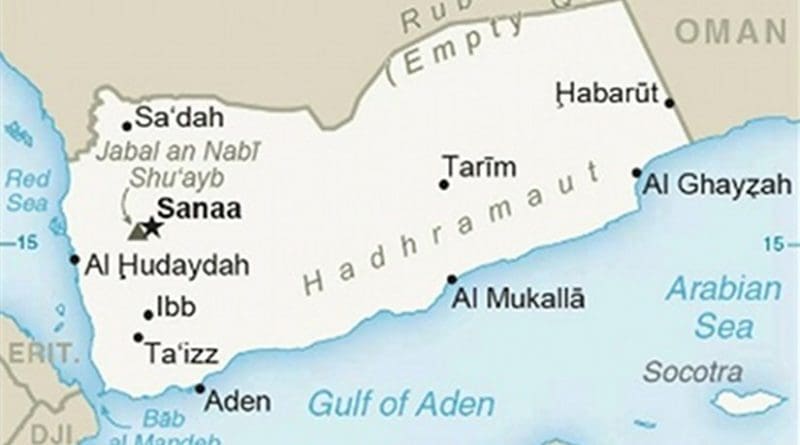The Trumpification Of Yemen War – OpEd
After two years of bloody, indiscriminate savagery perpetrated on poor Yemen, the Saudi rulers are now on the verge of dragging the US in the Yemen conflict with their planned amphibious assault on the Houthi-controlled Hodeidah Port, which currently serves as the main venue for the inflow of international aid to the starving, besieged population. If successful in convincing Trump to get on board with their invasion, the Saudis are sure to turn the dire situation in Yemen into a major catastrophe, despite their propaganda campaign to sell it to the aid organizations and the world community as an act of benevolence.
The impending attack on Hodeidah, apparently receiving the approval of US Defense Secretary James Mattis in his recent tour of the region, is part of a broader campaign to end the two-year-old civil and inter-state war in favor of the Saudi-led coalition and their Yemeni puppets seeking to destroy the Houthi power, which showed its popular support in the demonstration of literally hundreds of thousands protesting the Saudi atrocities in the streets of Sanaa last March.
Clearly, then, the campaign to wrest control of Hodeidah is only the first step that is designed to be extended all the way to Sanaa some 300 kilometers away. (1) The immediate upshot of this campaign is to put the lives of some 7 million Yemenese civilians in serious jeopardy, as the Houthis and nationalist Yemense will surely put up a heroic resistance against the invaders, particularly in the mountainous regions, somewhat similar to the Saudi-Yemen war of 1934, which culminated in the Taif Treaty and the absorption of parts of Yemen into Saudi territory. The long history of territorial and political clashes between the two countries notwithstanding, it is, of course, a caricature of reality by the Saudis and their US protectorate power to depict the present conflict as an Iran-induced proxy war.
But, as the saying goes, truth is the first casualty of any war.
With respect to the US’s involvement, which is presently limited to airstrikes and covert war against al-Qaeda in Yemen and providing logistical support for the Saudi war campaign, the operation to seize Hodeidah Port will certainly require a new level of US force commitment that might result in counter-attacks against the US forces and thus spiral out of control. The Americanization of the Yemen conflict, championed by Mattis, carries huge risks for US’s interests in the Middle East, particularly in Iraq, where the pro-Houthi sentiments among the fellow Iraqi Shiites run high; in fact, more than Iran, the Houthis look for spiritual guidance to Ayatollah Sistani in Najaf, who only needs to issue a religious decree in defense of the Houthis for popular anger to be directed against the US forces in Iraq. Even without such a decree, or fatwa, the US runs the risk of such enormous backlashes, by appearing to take a side in a ‘sectarian conflict’ against the Shiites. The net result would be, in a word, getting mired in the Yemen quagmire, which can be ended only through political negotiation.
Yet, instead of prudent negotiation, the Saudis have now fixed their gaze on Trump’s planned visit, date unconfirmed so far, hoping to convince Trump to use the occasion to echo their Iranophobic trumpet and put a seal of approval on their self-delusional, short-sighted wishful plan to “reunify Yemen” under the pro-Saudi militias led by the former president Mansur Hadi. In fact, chances are that the Houthis and their allies will retaliate by launching more missile attacks inside Saudi Arabia, thus taking the war to the Saudis themselves.
Strong historical similarities with Vietnam exist that are worth reviewing by the Trump administration before it falls into the Saudi trap. This is clearly a recipe for disaster and the ruse of war and a quick and decisive defeat of the rebel Houthis is a figment of Saudi imagination, presently infecting Pentagon’s chief, who ought to know better the precious lessons of history. Mattis and Trump ought to listen to the UN’s urging against such an attack — that will only distract from the war on terrorism and benefit al-Qaeda and other terrorist organizations operating in parts of Yemen today.
(1) For a map of the Yemen conflict see: Mapping the Yemen conflict | European Council on Foreign Relations

